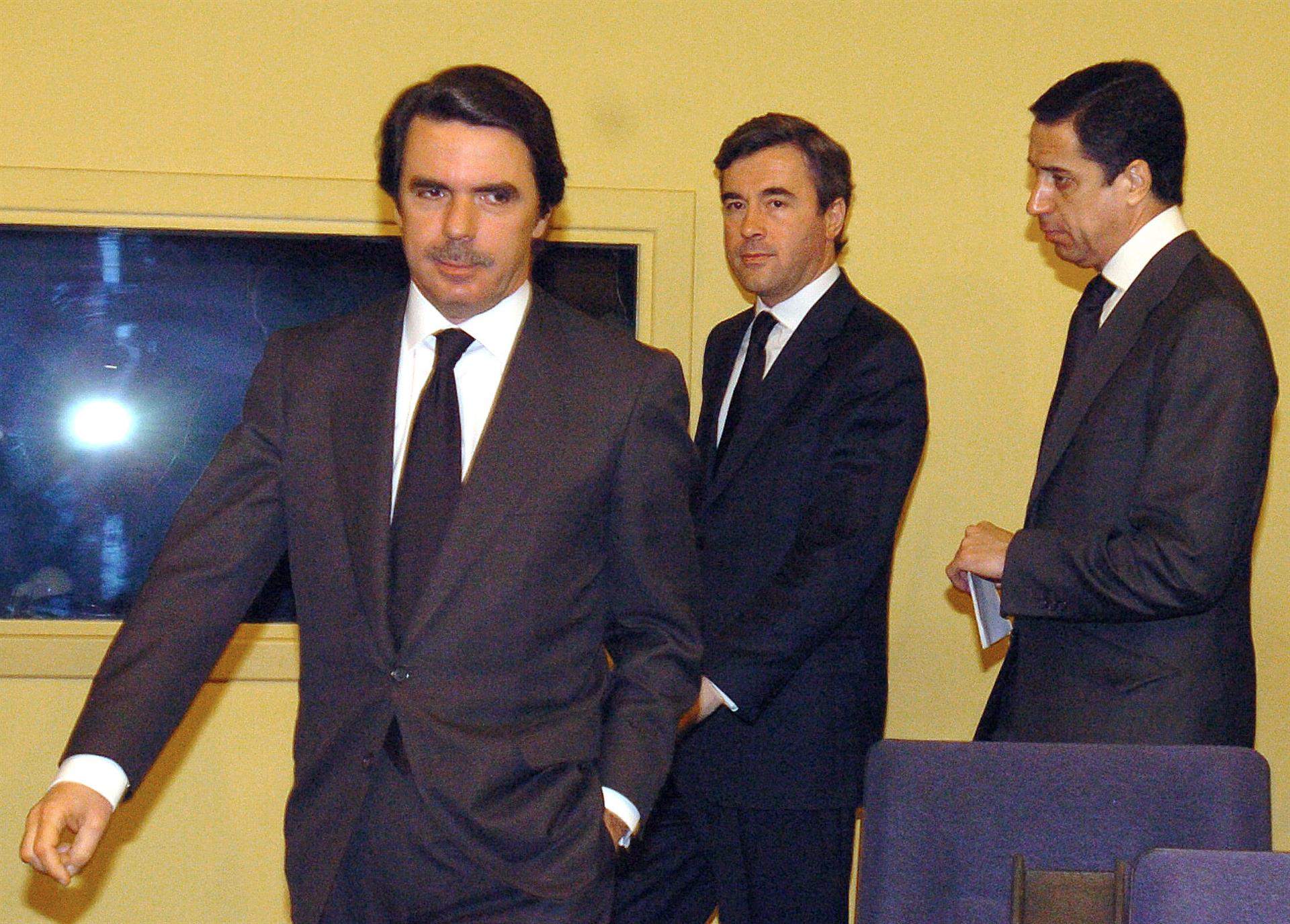Spain's deadliest terrorist attack - the so-called 11-M Jihadist attacks in Madrid that killed 193 people - led to José María Aznar's biggest lie. The then Spanish prime minister sought to link the Basque terrorist group ETA with the multiple train bombings in Madrid on March 11th, 2004. Just three days before the Spanish general election was due, the outgoing leader of the People's Party (PP) wanted to prevent the terrible attacks being perceived by the public as a response to Spain's active role in the invasions of Iraq and Afghanistan. Due to the popular mobilization in Spain, he did not succeed. Now, on the twentieth anniversary of the attacks, a newly-revealed report by the Ertzaintza - the Basque Country autonomous police - drafted the morning after the bombings, confirms the PP leader's attempts to influence the search for the perpetrators of the attack and link them with the Basque armed organization.
In a "secret" document with the code 101L0400250 and the title of 'Repercussions of the Atocha attack', an informer for the Basque police, working in the Spanish capital, recounts how the Popular Party executive was "trying by all means possible to link ETA with the Arabs until after the general elections". "If they failed to achieve it, everyone would be out of a job", states the report published by digital newspaper elDiario.es.
The informer 'Zulo'
The informant, codenamed 'Zulo', had the highest rating as a source of any in the database of the Basque police's's Information and Analysis Unit (UIA). At that time, the Ertzaintza classified its informers in three different levels: A, B and C. The first letter of the alphabet represented the best. In this case, he received a 'B' grade for reliability, as his "information had to be worked on a little more".
In the report, the Basque police indicate that "these people", that is, Spain's National Intelligence Centre (CNI), and therefore Aznar's government, "knew since midday" on the day of the bombings that "there was a car with explosives and a document in Arabic" - referring to a van which was located in the Madrid locality of Alcalá on the 11th itself containing seven detonators and a tape of Koranic verses - not clues that pointed at ETA.
In fact, the CNI contacted 'Zulo' at 8pm on March 11th, about 12 hours after the attack. The informer also had contacts in the Spanish Civil Guard and reported that the Spanish government was "fucked" because they knew that it had not been ETA but Al-Qaeda, responsible for the 9-11 attacks in the US, three years earlier. "It was necessary to try by all means to link ETA with the Arabs until the elections, since if this was not achieved, they would all be out of a job", the informant's text also states. The secret services went so far as to ask their contact to do his best, in his own work, to spread the thesis of ETA's authorship or, at least, of the Basque organization's relationship with "the Arabs". "It was necessary to create confusion until after the elections, since there was a lot at stake", said the informer, as elDiario.es reported.
From ETA to Al-Qaeda
In total, 193 people were killed and around 2,050 injured in the ten bomb explosions on rush-hour trains on Madrid lines on March 11th, 2004. On the afternoon of March 11th, special editions of the main Spanish newspapers carried the news of the bombings, and after prime minister Aznar had personally informed editors of what the authorities "knew", they also reported that ETA was believed to have been responsible for the attacks. By election eve, March 13th, the media were reporting that definitive evidence had appeared linking the attacks to an Al-Qaeda jihadist group. The following day, in a high electoral turnout, Spanish voters threw out the PP and gave an unexpectedly comfortable victory to José Luis Rodríguez Zapatero's Socialists.

